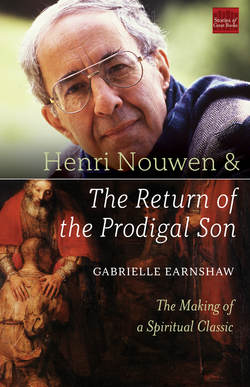Читать книгу Henri Nouwen and The Return of the Prodigal Son - Gabrielle Earnshaw - Страница 6
На сайте Литреса книга снята с продажи.
A Note About Sources
ОглавлениеI have used a variety of sources to piece together the story of how Henri Nouwen’s book The Return of the Prodigal Son came into being. The majority of sources are unpublished and are housed in The Henri J. M. Nouwen Archives and Research Collection at the University of St. Michael’s College, University of Toronto. As the founding archivist for the Nouwen Archives, a position I held for sixteen years, and now as the chief archivist for the Henri Nouwen Legacy Trust, I have a deep knowledge of what material is available for research.
Fortunately, Henri Nouwen kept meticulous records of his writing process. He created files for each book he wrote and this one is no different. The Prodigal Son files I had access to consist of draft manuscripts, notes and comments from his “first” readers for each draft, notes, and revisions from his paid copyeditor Conrad Wieczorek, as well as the totality of his correspondence with his publisher, Doubleday. Information about the Dutch and German editions (which were issued ahead of the American edition) was also readily available in Nouwen’s correspondence files.
In addition to the early drafts of the manuscripts kept by Henri Nouwen himself, I relied on two other sources to trace the chronology of his writing process. One is a typed manuscript that was donated to the Nouwen Archives in 2010. This is what I consider to be the earliest draft of the book. It was written in 1987 and is referred to as the Turner accession (based on the name of the donor). The second is a recording of a retreat that Henri Nouwen gave on the prodigal son in June 1988. This retreat was given in Quebec, Canada, to L’Arche assistants and is referred to as the “Returning” retreat. The transcript from this retreat was eventually edited as Home Tonight by Sue Mosteller (Doubleday, 2009). At times I quote from the transcript of the retreat and others times from Mosteller’s edited work.
In addition to these sources, I relied on correspondence between Nouwen and his close friends Sue Mosteller, Nathan Ball, and others; readers’ letters to Henri Nouwen; administrative files regarding his work as pastor for L’Arche Daybreak; oral history interviews from the Henri Nouwen Oral History Project; Nouwen’s collected material on Anton Boisen that I refer to in chapter 2; and drafts of an unfinished work about the spirituality of the trapeze, known as the Circus Book. Finally, at times I rely on conversations I have had with key figures in Henri Nouwen’s life, including his brother Laurent Nouwen, Sue Mosteller, and Peter Naus.
All quotations of Henri Nouwen from published works will be noted in the text using abbreviations. Quotations from unpublished archival sources and other authors will include a footnote to the source.
A bibliography of all works cited (published and unpublished) is available at the end of the book.
All archival sources have been gratefully published with permission of the Henri Nouwen Legacy Trust.
